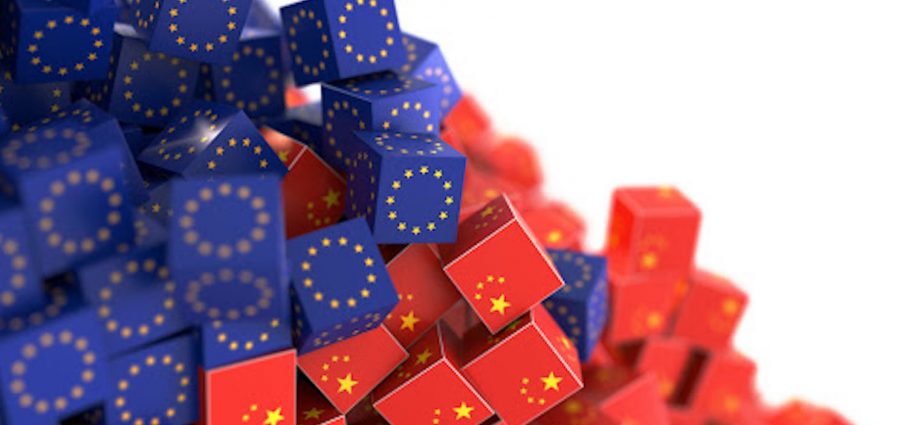In early December 2022, President of the European Council Charles Michel traveled to Beijing for his first face-to-face meeting with Chinese President Xi Jinping.
The visit came after two events that epitomize the state of EU-China relations. The Chinese side refused to run a pre-recorded speech criticizing Russia’s invasion of Ukraine by Michel at the China International Import Expo.
This was followed by the lack of any meeting between Xi and Michel or European Commission President Ursula von der Leyen at the G20 Bali summit, where Xi met other European leaders.
Michel followed in the footsteps of German Chancellor Olaf Scholz, whose visit to China, alongside a business delegation, received considerable criticism. The Michel–Xi meeting — like the Scholz–Xi meeting — did not deliver important results while EU-China relations have been spiraling downwards. But neither side seems to have any strategy on how to deal with the other.
In early 2019, the European Union started referring to China as a “cooperation partner”, “negotiating partner”, “economic competitor” and “systemic rival.” But since then, the European Union has failed to figure out what it wants from China.
Most EU actions have so far been defensive against what it considers unfair economic practices or risks coming from Beijing. The European Union has set up a foreign investment screening mechanism, set guidelines warning against using 5G gear from suppliers considered high-risk and is working on implementing an anti-coercion instrument and imposing restrictions on Chinese involvement in the EU public procurement market.
Different perspectives on relations with China and a lack of unity among and within member states, EU institutions and other European stakeholders prevented the creation of a coherent strategy. Some want to focus on economic relations while others want to prioritize political, security or human rights issues.
Despite individual perspectives, the political environment in Europe hardened against cooperation with China.

Yet trade and investment links to China continued to grow. Because the European Union and most European governments lacked a clear view of how they wanted to transform bilateral relations with China, EU–China ties continued to develop on autopilot.
Beijing also seems unsure of what it wants from Europe or how to achieve its goals. In theory, it is quite easy to say what China wants from the European Union — to avert a deterioration of relations and maximize economic, technological and political benefits and prevent the emergence of a trans-Atlantic united front against Beijing. But China has taken almost no concrete steps to achieve these goals.
Since 2019, China has not really tried to arrest the precipitous decline in its European relations. The Comprehensive Agreement on Investment should have been such an attempt, but after the conclusion of negotiations, Beijing torpedoed hopes for the agreement’s ratification by sanctioning the very people who were supposed to approve it in the European Parliament.
In areas like state distortion of markets, sensitive technology, human rights, worries of political interference in Europe or aggressive diplomacy, Beijing has only provided more ammunition to those who want to curtail ties with China.
Yet Chinese rhetoric consistently paints a different picture. The Chinese side calls the European Union a partner, pleads for closer cooperation, urges it to pursue “strategic autonomy” and prevent any “third party” from interfering in bilateral relations in every meeting or call with European officials.
In 2022, China sent its special representative for Central and East European cooperation on two tours through the region to ‘explain’ China’s position on the Russian invasion of Ukraine and repair relations. It has also sent diplomatic officials on visits throughout Europe.
But Beijing’s actions have been limited to rhetoric and diplomatic gestures. There is no way EU-China relations can be improved without concrete action on China’s part — talk alone will not work.
As much as the Communist Party leadership would deny this, it also bears at least part of the blame for the deterioration of EU-China relations and would have to compromise and change its behavior and policies in order to improve relations with Europe.
However, just like in Europe, the political environment in China makes any true detente unlikely. The Communist Party leadership’s grand narrative of China becoming strong — combined with its reluctance to admit mistakes — makes it highly unlikely that China would be the first to reach out to Europe.

Neither side can or wants to take the steps necessary to patch up relations. Nor do they want to recognize political realities and adopt a strategy tailored to the current geopolitical environment of confrontation. Instead, leaders on both sides fall back on the easy option of talks and meetings — even though these will not change trends in bilateral relations.
As the political environment continues to deteriorate, economic ties and other relations simply move forward on autopilot without any side having a clear or realistic view of where they want relations to go or how to get there.
The hardening political environment will eventually impact economic ties — as relations and cooperation become more controversial, both sides will implement economic restrictions. Future meetings might bring the illusion of communication but will do little to change the trajectory of EU-China relations.
Andrei Lungu is president of the Romanian Institute for the Study of the Asia-Pacific (RISAP).
This article, republished with permission, was first published by East Asia Forum, which is based out of the Crawford School of Public Policy within the College of Asia and the Pacific at the Australian National University.

